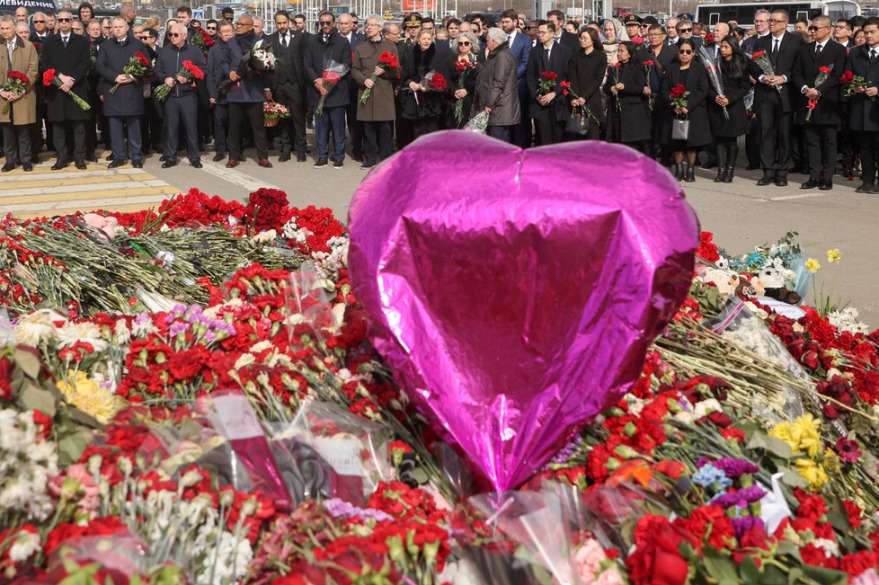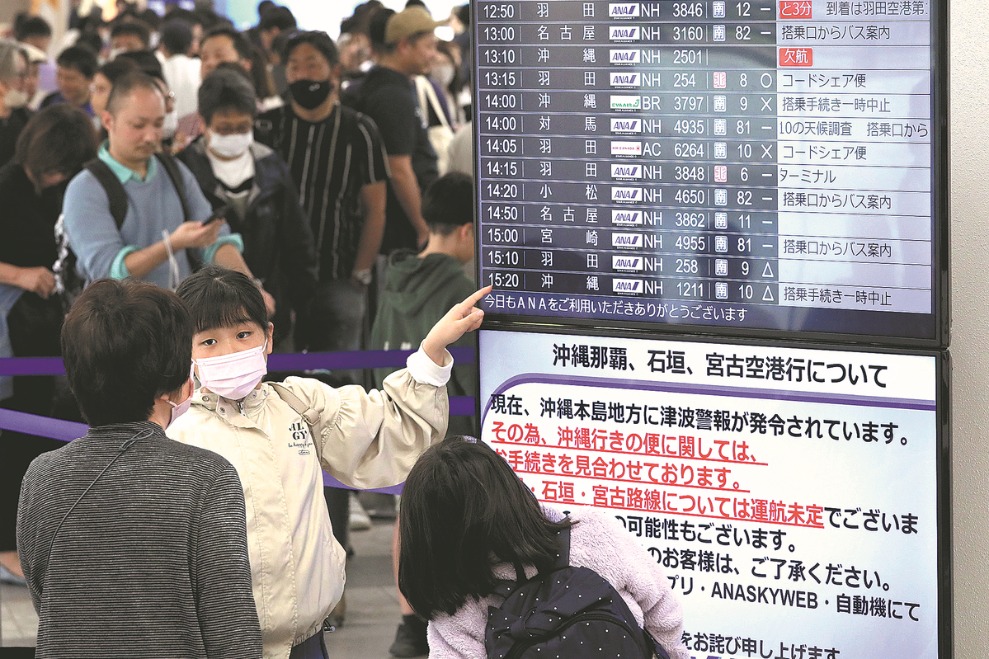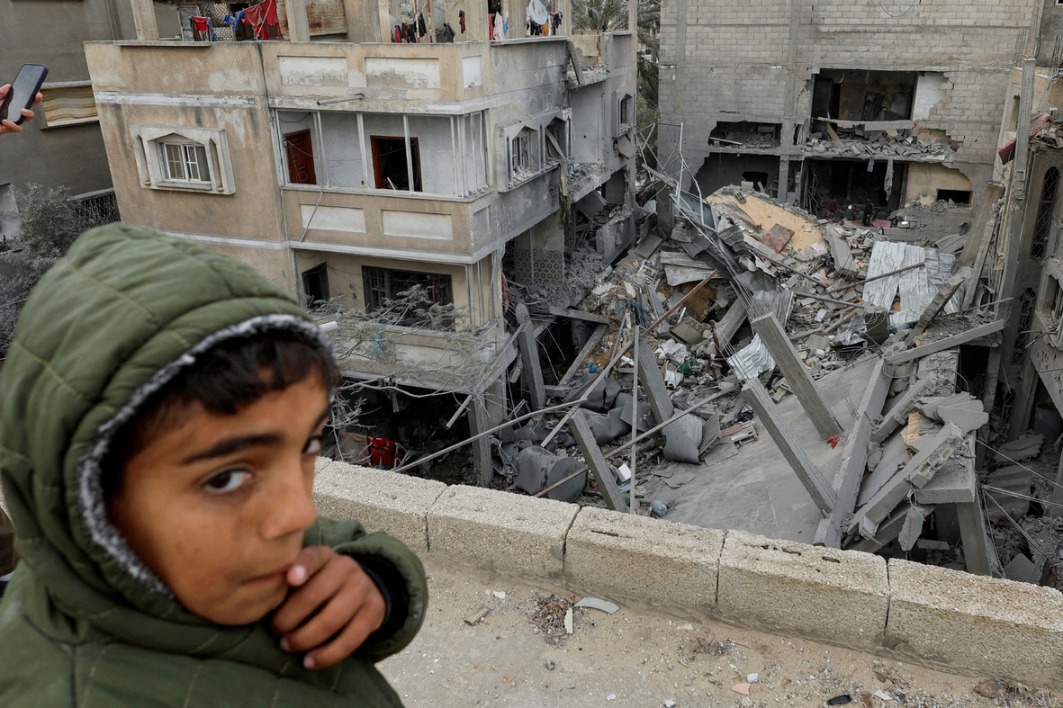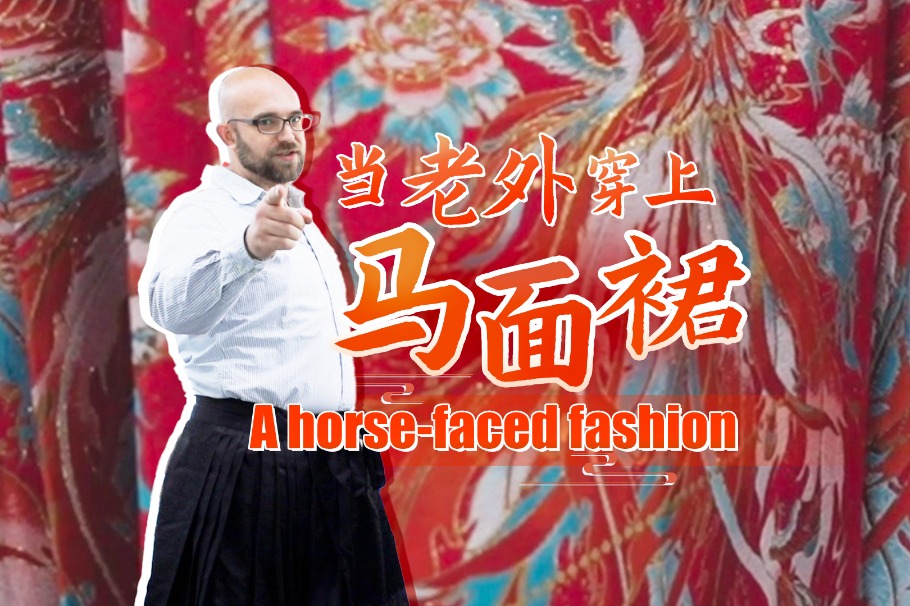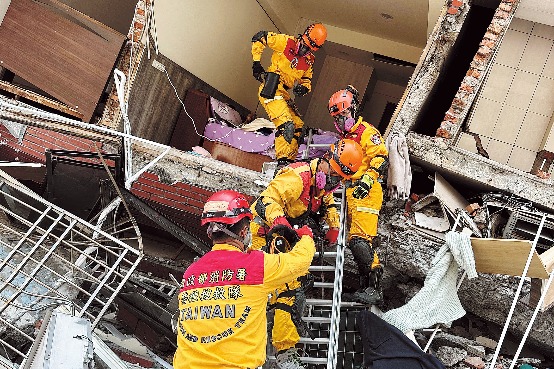Heartwarming reunion raises toast to China's medical aid missions abroad
By Liu Kun in Wuhan | China Daily | Updated: 2024-01-04 07:20
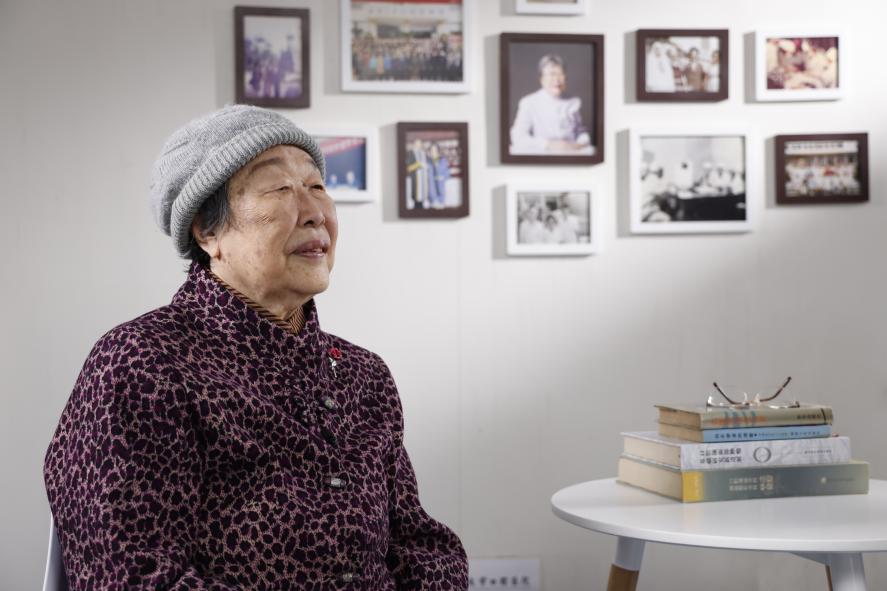
When 89-year-old Li Jinrong heard someone calling her "mom" at an event in Wuhan, Hubei province, she immediately rose from her seat.
A foreign woman ran toward her before hugging her tightly and saying, "Mom, mom." With tears of joy, Li gently patted her back and said, "Bonjour."
The woman, Bouammouch Kheira, who is from Algeria, underwent a total nasal reconstruction surgery — the first such operation in Africa — that was done by Li and other members of a Chinese medical team 39 years ago.
Li and Kheira reunited last month at an event marking the 60th anniversary of the sending of China's first foreign aid medical mission, which was sent to Algeria. Kheira, 50, traveled 10,000 kilometers from Algeria to arrive in Wuhan the day before the anniversary event on Dec 19.
"This is my first visit to China, but I didn't feel the journey was arduous at all, because I was so excited to meet Professor Li, my Chinese mother," Kheira told Xinhua News Agency last month.
In November 1984, Li, then a surgeon at the Hospital of Stomatology affiliated with Wuhan University, joined the 11th Chinese medical aid mission to Algeria. She helped a hospital in the North African country carry out oral and facial surgeries, enhancing the standard of medical care there and strengthening the friendship between the two countries.
In March 1985, Kheira, then 12, visited a hospital in Algeria's Mascara Province to seek treatment for a stomach infection. Li and her colleagues were providing medical assistance at the hospital. One of the Chinese team's doctors noticed Kheira's badly disfigured nose, the tip of which was bitten off by a donkey when she was just 2 years old. The doctor took Kheira to see Li.
"Had she not been disfigured, she would have grown up to be a great beauty," Li said. "The surgery could accept nothing less than full victory."
The hospital in Wuhan where Li worked had conducted nasal reconstruction surgeries since the 1960s. However, the conventional method required skin grafting from the forehead, which left a scar on the patient's face.
After consulting medical literature and taking the Algerian hospital's limited medical capabilities into consideration, Li devised a comprehensive treatment plan and decided to transplant skin from one of Kheira's upper arms, because it matched her facial skin tone and was only a short distance from the nose.
Kheira admitted that she was scared at first, but Li's earnest attitude when inquiring about her symptoms and hands-on approach in changing her dressings reminded her of her mother and gave her hope.
The reconstruction of Kheira's nose required four surgeries over a period of two months, including elaborate procedures that involved cutting the skin and subcutaneous fat, transferring a skin flap, immobilizing the repaired nose with plaster, and trimming and reconstruction.
Many people visited the hospital to witness the first such surgical procedure in Africa. After its successful completion, Kheira ran from ward to ward, telling everyone she met that she now had a nose identical to theirs, courtesy of her "Chinese mother", and sniffing to prove she could breathe easily and smoothly.
"Without my Chinese mother, my life would be darker than death," Kheira told Hubei Television in Wuhan last month.
The Algerian Ministry of Health praised the Chinese team's handling of Kheira's surgery and told all the hospitals in the country to refer patients with facial deformities to the hospital in Mascara.
"As a member of a Chinese foreign aid team, I knew that my duty was not only to help local residents with common illnesses, but also to find remedies for long-standing and challenging diseases," Li said.
Contribution hailed
During her two years in Algeria, Li once performed six surgeries in a row without sleep, helping people with sinus problems and neck tumors live normal lives. She also established Algeria's first oral and maxillofacial department at the hospital in Mascara, and passed her skills and knowledge on to Algerian doctors.
When Li left the hospital in October 1986, many people gathered to bid farewell to her and other members of the Chinese team, showering them with local specialties to express their gratitude.
Since China sent its first foreign aid medical team to Algeria in 1963, nearly 30,000 medical workers have provided treatment to nearly 300 million patients in 76 countries and regions around the world, the National Health Commission said.
In September, Wuhan sent its 28th medical aid team to Algeria.
"Foreign medical teams play an important role in promoting healthcare services in developing countries and striving for world peace," Li said. "We are fulfilling a glorious internationalist obligation."
Li Menghan contributed to this story.





